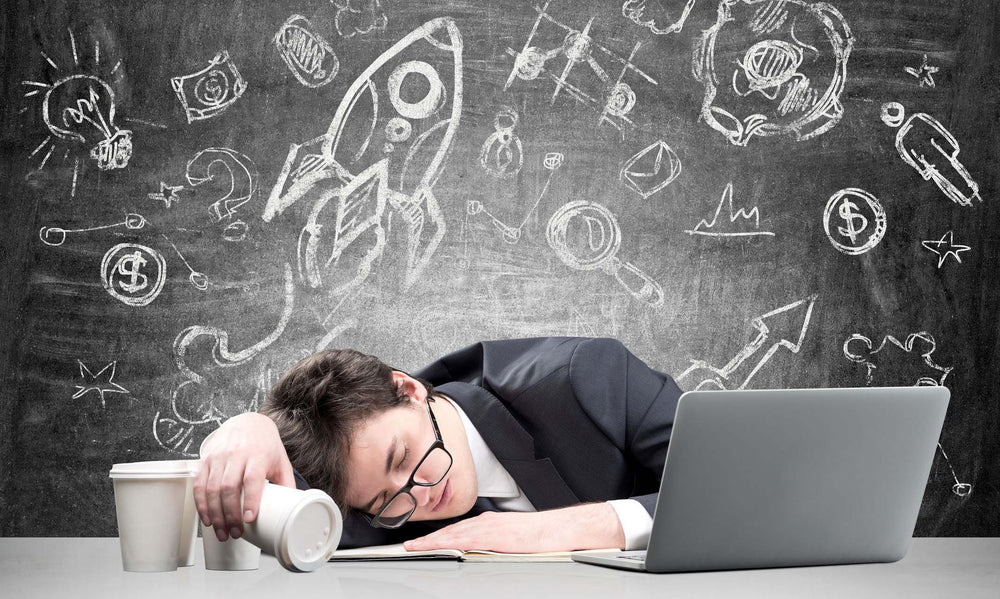
There’s a lot happening in the Harvey household at the moment. Between the new book I’ve been writing for the last year and a half, the new film we’ve just received development funding for, the new baby who is due to arrive in late July, working to keep the bills paid, and the general hustle and bustle of every day life, just like many of you reading this post, I’ve got a lot to think about. My head space feels rather full.
At times like this it’s easy to tell myself I’m too busy to cook good food, or keep up my regular exercise, or to give in to mental fatigue after a hard day and stay up late watching television. These are all things I’ve been guilty of during busy periods in the past. What usually follows is a deep sense of weariness and an autoimmune flare up where my body becomes sore and inflamed with arthritis. It’s taken me many years to learn that maintaining my healthy habits during times like this is more important than ever and lately, I’ve come to think that sleep is actually the top of the list.
When you think about it, sleep doesn’t really make sense from an evolutionary-survival-of-the-fittest point of view. After all, during sleep we’re unconscious, paralysed and hardly on red alert for wild animals that want to make us their next meal. And yet, we humans spend about one third of our lives asleep. Although biologists have scoured the earth, to date there is no clear evidence of a species that does not need to sleep, so we know sleep must serve some kind of vital need. But why, when it’s so risky, do we spend such a significant part of our lives lying dormant, with our eyes closed, unaware of the world around us?
Thanks to modern research we now know that there are two distinct types of sleep - slow-wave sleep (SWS), known as deep sleep, and rapid eye movement (REM), also called dreaming sleep. Most of the sleeping we do is of the slow wave variety and it’s characterised by large, slow brain waves, relaxed muscles and slow, deep breathing. This type of sleep is considered restorative as it helps your mind and body to recuperate after a long day. The other type of sleep, REM, is not well understood but it is considered so important that some researchers describe it is a third state of consciousness, alongside being awake and being asleep. To an observer, REM is utterly bizarre. A dreamer's brain becomes highly active while the body's muscles are paralyzed, and breathing and heart rate become erratic. In a typical night, you’ll switch between REM and SWS about four to six times, with each cycle lasting 90 to 110 minutes.
With all that in mind, although there is a growing understanding of the biochemistry and the neurobiology of sleep, it’s exact function and purpose remains somewhat of a mystery. Researchers are still trying to understand exactly why sleep is restorative and why lack of sleep impairs brain function.
One break through study came from neuroscientist Maiken Nedergaard the University of Rochester in 2013. By peering into the waking and sleeping brains of mice, she discovered that during sleep the brain activates a waste disposal system, clearing out harmful proteins that build up between cells. "You can think of it like having a house party. You can either entertain the guests or clean up the house, but you can't really do both at the same time,” Nedergaard told BBC News when her research was first published.
Like the lymphatic system, which clears waste from our body, this glymphatic system has been shown to clear waste such as beta-amyloid (a protein associated with Alzheimer’s) from our brain. When our brains don’t have enough time to rest, toxins build up, and neurodegenerative disease may set in. Given that sleep disruption is closely associated with neurodegenerative diseases like Alzheimer’s disease and dementia, it may well be that too many of us have been doing too much entertaining and not enough cleaning up afterwards.
So with my brain choc full of the latest research I’ve been reading for my book, preparing for interviews with scientists, running a household, being the mother of a toddler, preparing for a new baby’s arrival and thinking about our future plans for the next film…. I’m taking myself off to bed. There’s some serious cleaning up that needs to be done if I want to keep all this up.
Of course, when times are really eventful, sleep isn’t always readily available and many of us can succumb to insomnia. If you’d like to read about some of the rather weird (but evidence based) things we do in our house after sunset to reduce the chances of insomnia setting in, check out this post I’ve written about how artificial light can wreck your sleep. You might also be interested in this post about how I learned to get a good night sleep, and this post about why successful people actually get more sleep.





 The Connection (DOWNLOAD-TO-OWN)
The Connection (DOWNLOAD-TO-OWN) My Year Of Living Mindfully - Book
My Year Of Living Mindfully - Book




